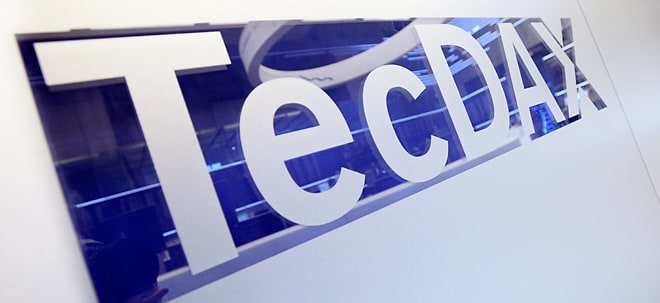U.S. Food & Drug Administration (FDA) Approves Investigational New Drug (IND) Application for Myrio's Lead Product (PHOX2B PC-CAR T) for the Treatment of Neuroblastoma
MELBOURNE, Australia, June 13, 2025 /PRNewswire/ -- On 7 May 2025, the FDA approved an IND application enabling Myrio's lead product (PHOX2B PC-CAR T) to enter human trials. Myrio, in collaboration the leading children's hospital in Philadelphia have co-developed a Chimeric Antigen Receptor (CAR-T) therapy for the treatment of neuroblastoma. Under the leadership of Prof. John Maris, a functionally relevant and highly specific protein, called PHOX2B, was identified in neuroblastoma cells and the team elucidated that a peptide from PHOX2B could serve as an excellent target for an immunotherapy to treat this devastating disease.
Myrio developed a highly specific binder to the PHOX2B peptide-major histocompatibility complex (p-HLA) target using its unique ReDTM technology. In collaboration with the hospital, the Myrio binder has been engineered into a CAR-T product. Importantly, unlike other binders which target a single HLA-allotype, Myrio's binder is capable of recognizing the peptide in multiple HLA-allotypes, a phenomenon referred to as breaking HLA restriction, which offers the opportunity to treat a broader population of patients using the same immunotherapy.
This groundbreaking approach was detailed in a publication by Myrio, in the journal Nature titled "Targeting of intracellular oncoproteins with peptide-centric CARs."[1] in November 2023.
This is the first time a binder developed by Myrio will enter a human trial and is a major validation of the company's technology, building on the significant insights shared in their joint research.
"Neuroblastoma is the most common tumor of the sympathetic nervous system, the most common malignancy of infancy and accounts for 15% of pediatric cancer-related deaths", said Prof. Maris. The current treatment options for patients with high-risk neuroblastoma are associated with low response rates and significant toxicities and the development of new treatment options is desperately needed. This investigational immunotherapy has the potential to be a major advance for patients suffering from this devastating disease".
The Phase 1 clinical trial entitled "PHOX2B Peptide-Centric Chimeric Antigen Receptor Autologous T cells (PHOX2B PC-CAR T) for Relapsed Neuroblastoma will be conducted under the leadership of Prof. Maris and it is anticipated that the first patient will be enrolled mid-year 2025.
Dr Graeme Wald, CEO of Myrio Therapeutics commented "that this is a major step forward for Myrio. It is the culmination of many years of work at Myrio in developing bispecific binders to Human Leukocyte Antigens for the treatment of solid tumours."
About Neuroblastoma
Neuroblastoma is the most common tumor of the sympathetic nervous system (97%) and the most common malignancy of infancy with a median age of diagnosis of 17 months.[2] The annual incidence of neuroblastoma in the United States is approximately 800 cases, and it accounts for 15% of pediatric cancer-related deaths.3 Due to the high variability in its presentation, clinical signs and symptoms at presentation can range from a benign palpable mass with distension to major illness from substantial tumor spread. Although overall increases in five-year event-free survival have been reported, this has come at the cost of significant life threating treatment-related side effects, and subgroup-specific analysis of mortality has revealed discordance between the high cure rates for the more benign low-risk forms and little improvement in the high-risk groups.[3],[4],[5]
About Myrio
Myrio is a privately held company based in Melbourne Australia. It has developed an entirely novel discovery platform, Retained Display (ReDTM), which is geared towards the discovery of highly stable, full human, scFv binders against peptides presented on the surface of solid cancer cells as presented by the HLA complex. These binders have repeatedly shown their utility in bispecific T-Cell Engager or CAR-T formats to direct cytotoxicity against pHLA specific target tumour cells. In the case of a bispecific T-Cell Engager the molecule binds to both the pHLA and a T-cell – the T-cell then kills the tumour cell. In the case of a CAR-T therapy, the antibody is expressed on the surface of a CAR-T cell targeting it against the pMHC, directing the killing of the tumour cell.
[1] Mark Yarmarkovich, Quinlen F. Marshall, John M. Warrington, Rasika Premaratne, Alvin Farrel et al. Targeting of intracellular oncoprotiens with peptide-centric CARs. Nature. 2023 Nov 623 (7988): 1-8. |
[2] London WB, Castleberry RP, Matthay KK, Look AT, Seeger RC, Shimada H, Thorner P, Brodeur G, Maris JM, Reynolds CP, Cohn SL. Evidence for an age cutoff greater than 365 days for neuroblastoma risk group stratification in the Children's Oncology Group. J Clin Oncol. 2005 Sep 20;23(27):6459-65. |
[3] Maris JM. Recent advances in neuroblastoma. N Engl J Med. 2010 Jun 10;362(23):2202-11. |
[4] Maris JM, Hogarty MD, Bagatell R, Cohn SL. Neuroblastoma. Lancet. 2007 Jun 23;369(9579):2106-20. |
[5] Linabery AM, Ross JA. Childhood and adolescent cancer survival in the US by race and ethnicity for the diagnostic period 1975-1999. Cancer. 2008 Nov 01;113(9):2575-96. |
![]() View original content to download multimedia:https://www.prnewswire.com/news-releases/us-food--drug-administration-fda-approves-investigational-new-drug-ind-application-for-myrios-lead-product-phox2b-pc-car-t-for-the-treatment-of-neuroblastoma-302480916.html
View original content to download multimedia:https://www.prnewswire.com/news-releases/us-food--drug-administration-fda-approves-investigational-new-drug-ind-application-for-myrios-lead-product-phox2b-pc-car-t-for-the-treatment-of-neuroblastoma-302480916.html
SOURCE Myrio Therapeutics


